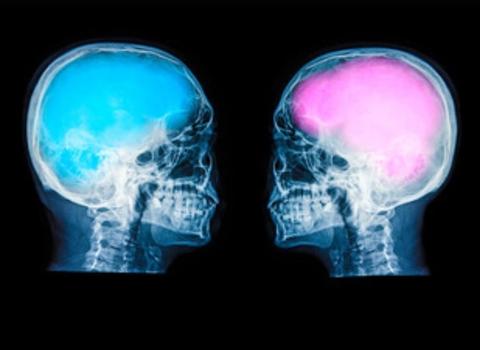
Dual Master's in Brain and Mind Sciences
- Course duration: two years
- Language of instruction: English
- Course locations: England, France
Programme Overview
The Dual Master's in Brain and Mind sciences is an international 2-year programme, offered by University College London, Sorbonne University and the Ecole Normale Supérieure. The overarching educational aim is to give a grounding in Brain & Mind Sciences from a multi-disciplinary perspective and to provide a sound basis for choosing an appropriate doctoral research topic.
The master’s is designed to allow French and foreign students to follow an individualised programme of study through taught modules and research projects in disciplines relevant to the Brain and Mind Sciences. Students choose from a large number of courses proposed by each of the three prestigious partners.
For more details on the master's programme, please visit this page : International master in brain and mind sciences - DUAL MASTER
Programme Overview
It is a two-year master’s programme:
- Year 1= M1
- Year 2= M2 (Paris)
| M1 | Courses in London + research project After completion of the first year, students graduate with a Brain and Mind Sciences Master’s Degree from UCL. |
| M2 | Courses in Paris + research project After completion of the second year, students graduate with a Master’s diploma from Sorbonne University. |
- The Dual Masters first year comprises theoretical courses (90 credits*), a library project (30 credits*) and a research project in a laboratory (60 credits*).
- You can choose courses/modules from different MSc/MA courses.
You must have successfully completed the UCL year (First Year) in order to progress to the Second Year (M2) in Paris.
This second year comprises one semester of courses (30 ECTS) and one semester dedicated to the reseach project (30 ECTS). Each student’s options will be discussed individually at the beginning of the year with the co-directors. Courses can be chosen from a selection of courses of the following masters :
- « M2 BIP parcours Neurosciences » at Sorbonne University
- « Master Sciences de la Vie / IMaLiS, M1 parcours Neurosciences » and « Master Sciences de la Vie / IMaLiS, M2 parcours Neurosciences »
- « Cogmaster » (ENS-PSL-EHESS-Paris Descartes)
Please be aware that in the two latter masters above only a subset of modules are available to the Dual Masters’ students (list available on request).
Students will be registered at Sorbonne University in the Dual Masters track of the M2 BIP Neurosciences.
Entry Requirements & Admissions
Candidates for the Dual Masters should have a Licence/BSc in Life Sciences or another discipline closely-related to the Brain and Mind Sciences such as Cognitive Science or Psychology. You will be required to demonstrate that you have at least some background in cellular biology. During the two years of the Dual Masters the course directors will request that you take at least one course in the cognitive neurosciences and at least one course in the cellular/systems neurosciences.
For French students: We require at least a mean of 13/20 during the Licence; a mean of 14/20 is easier because it is equivalent to a British "2.1" diploma.
For British students: a 1st or 2:1 class honors degree is required.
For North American students: A GPA of at least 3.5 (out of 4.0 maximum) is required.
All teaching during Year 1 at UCL is in English. We require proof of competence in English; see the appropriate UCL web page:https://www.ucl.ac.uk/prospective-students/graduate/learning-and-living-ucl/international-students
During Year 2 the majority of courses are taught in English, although somemodules are taught in French. We recommend that candidates have the B1/B2 level on the CEF scale before starting the Dual Masters.
Applications are evaluated throughout the spring.
Documents (all in English) you will need for your application :
- CV-personal statement explaining your motivation for this particular 2-year program
- All previous academic transcripts, with a clear explanation of the grading system, and an official university translation.
- Proof of competence in English(see UCL website for the accepted tests)
- One reference letter from a professors or lab supervisor who knows you and your work sufficiently well.
